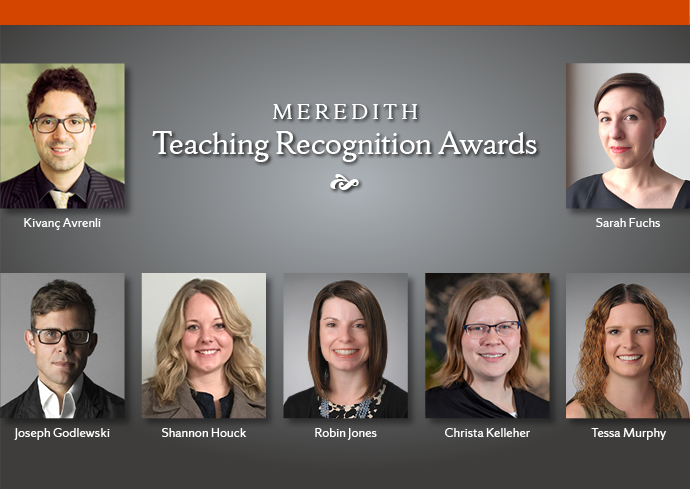From Wedding Day Pics on Campus to Working at ‘Otto’s House’: Brianna and Kevin Shults Share Their Orange Love Story
It started with trivia nights at the Inn Complete and a mutual fandom of Orange sports and grew into a life filled with Orange pride, campus milestones and a little one who thinks Otto the Orange runs the world. For…


 Seven non-tenured faculty members have been selected to receive the 2018-19 Meredith Teaching Recognition Awards. They are Kivanç Avrenli, Sarah Fuchs, Joseph Godlewski, Shannon Houck, Robin Jones, Christa Kelleher and Tessa Murphy.
Seven non-tenured faculty members have been selected to receive the 2018-19 Meredith Teaching Recognition Awards. They are Kivanç Avrenli, Sarah Fuchs, Joseph Godlewski, Shannon Houck, Robin Jones, Christa Kelleher and Tessa Murphy.